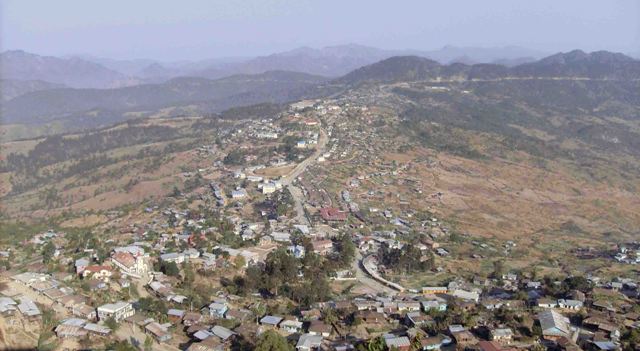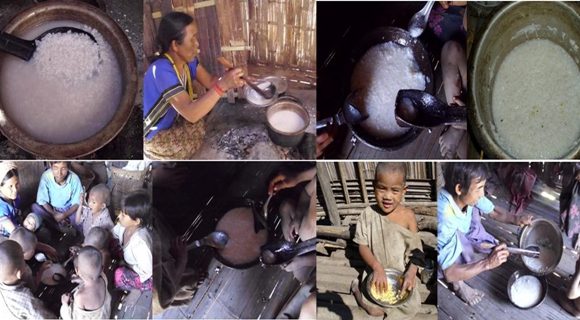Questions over Govt’s Plan to Construct New Buddhist Pagoda in Chin State

19 March 2012: Chin Christians living outside Burma have expressed their displeasure with a recent decision of the State level ministerial meeting to build a new Buddhist pagoda near Hakha Town, the capital of Chin State.
The issue has sparked heated discussions on several Chin internet discussion groups. Many Chins across the globe say they are surprised at how a meeting attended by 11 State cabinet members, which include six Christians, four Buddhists and one subscribing to indigenous religion Laipian, was able to arrive at a decision to sanction the construction of a Buddhist pagoda in a town whose habitual residents are nearly 100 percent Christians.
“Local people were surprised by the news. So far the government of Chin State has not disclosed anything about the meeting and no one seems to know about the details. This clearly is an indication of the lack of transparency in their administration,” a local Chin leader told Chinland Guardian.
The lack of transparency in the conduct of both legislative affairs and government branch is not new in Chin State. In June 2011, when ministry appointment was debated by a special sitting of the Chin State Parliament, all non-USDP MPs objected the government’s proposal to have only 8 ministries. But the official paper The Mirrors reported the next day that the appointment was ‘unanimously’ approved by the Chin State Parliament.
Sources claim that Hung Ngai, Chief Minister of Chin State, and Colonel Zaw Min Oo, Minister of Security and Border Areas, both Buddhists, put forward the proposal during the four-day meeting held in Hakha, Chin State from 24-27 February 2012.
The meeting decision stipulates that the new government-sanctioned Buddhist pagoda will be built on a scenic viewpoint overlooking Hakha Town. The designated place is located at the entrance to Hakha on the way towards nearby Thantlang Town.
Questions are being raised about who will pay for the construction, which was not discussed at the meeting.
“Why the need for construction of another Buddhist pagoda in Hahkha when the only Buddhist residents are temporary residents who are either working here as civil servants or Burma Army soldiers?” asked one Christian leader and a resident of Hakha.
According to the Chin Human Rights Organization (CHRO), which monitors human rights situation in Chin State, official restrictions on the construction or renovation of Christian religious infrastructures such as churches remain in place.
In July 2011, two Christian crosses erected by local Christians in southern Chin State’s Kanpetlet Township were destroyed by local Buddhist youths acting on instruction from the Chin State government.
Nine Chin Members of Parliament sent a letter of complaint to Burma’s president Thein Sein asking for an investigation into the incident. More than one thousand local Christians also sent a separate petition to Thein Sein. But no known action has been taken to date.
According to US-based Physicians for Human Rights, which conducted a study on human rights in Chin State, 14 percent of Chin households reported that they were persecuted on the basis of their Christian religious identity.
It is estimated that more than 90 percent of Chins are Christians.
@Chinland Guardian





